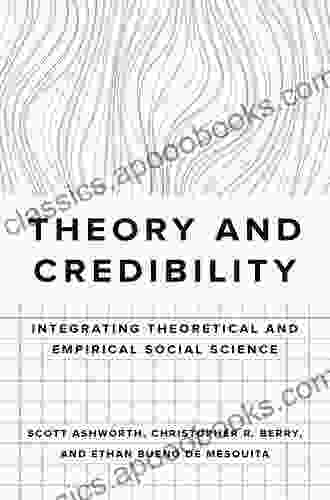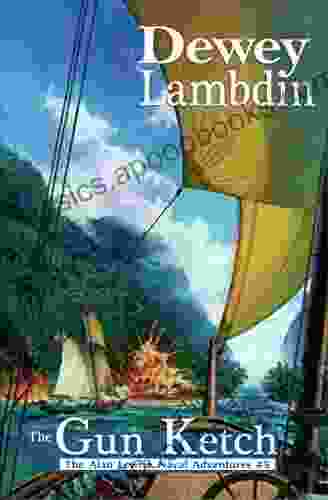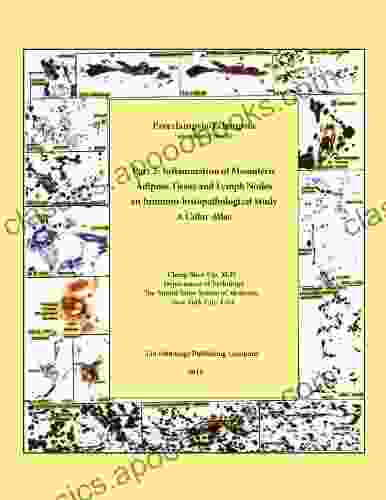Integrating Theoretical and Empirical Social Science

4.7 out of 5
| Language | : | English |
| File size | : | 7230 KB |
| Text-to-Speech | : | Enabled |
| Screen Reader | : | Supported |
| Enhanced typesetting | : | Enabled |
| Word Wise | : | Enabled |
| Print length | : | 265 pages |
A Comprehensive Overview
This book provides a comprehensive overview of the integration of theoretical and empirical social science. It covers a wide range of topics, including the history of the integration of theory and research, the different types of integration, the challenges and benefits of integration, and the future of integration.
The History of the Integration of Theory and Research
The integration of theory and research has a long history in social science. The first attempts to integrate theory and research can be traced back to the early days of sociology, when scholars such as Max Weber and Émile Durkheim sought to develop theories that could be tested with empirical data.
In the 20th century, the integration of theory and research became increasingly important as social scientists began to use more sophisticated methods to collect and analyze data. This led to the development of new theories that were more closely tied to empirical evidence.
The Different Types of Integration
There are many different ways to integrate theory and research. Some of the most common types of integration include:
- Deductive integration: This type of integration involves using theory to generate hypotheses that can be tested with empirical data.
- Inductive integration: This type of integration involves using empirical data to develop theories.
- Mixed methods integration: This type of integration involves using both deductive and inductive approaches to integrate theory and research.
The Challenges and Benefits of Integration
Integrating theory and research is not without its challenges. Some of the most common challenges include:
- The challenge of finding the right theory: The first challenge is to find a theory that is relevant to the research question being investigated.
- The challenge of operationalizing the theory: Once a theory has been identified, it must be operationalized into variables that can be measured with empirical data.
- The challenge of collecting and analyzing the data: The third challenge is to collect and analyze the data in a way that is consistent with the theory.
Despite the challenges, integrating theory and research can also have a number of benefits. Some of the most common benefits include:
- Increased rigor: Integrating theory and research can help to increase the rigor of research by providing a framework for interpreting the data.
- Increased generalizability: Integrating theory and research can help to increase the generalizability of research findings by providing a context for understanding the results.
- Increased relevance: Integrating theory and research can help to increase the relevance of research findings by providing a way to apply the results to real-world problems.
The Future of Integration
The future of the integration of theory and research is bright. As social scientists continue to develop new and more sophisticated methods for collecting and analyzing data, the integration of theory and research will become increasingly important. This will lead to a deeper understanding of the social world and the development of more effective social policies.
This book provides a comprehensive overview of the integration of theoretical and empirical social science. It covers a wide range of topics, including the history of the integration of theory and research, the different types of integration, the challenges and benefits of integration, and the future of integration. This book is an essential resource for anyone interested in the integration of theory and research in social science.
4.7 out of 5
| Language | : | English |
| File size | : | 7230 KB |
| Text-to-Speech | : | Enabled |
| Screen Reader | : | Supported |
| Enhanced typesetting | : | Enabled |
| Word Wise | : | Enabled |
| Print length | : | 265 pages |
Do you want to contribute by writing guest posts on this blog?
Please contact us and send us a resume of previous articles that you have written.
 Book
Book Novel
Novel Page
Page Chapter
Chapter Text
Text Story
Story Genre
Genre Reader
Reader Library
Library Paperback
Paperback E-book
E-book Magazine
Magazine Newspaper
Newspaper Paragraph
Paragraph Sentence
Sentence Bookmark
Bookmark Shelf
Shelf Glossary
Glossary Bibliography
Bibliography Foreword
Foreword Preface
Preface Synopsis
Synopsis Annotation
Annotation Footnote
Footnote Manuscript
Manuscript Scroll
Scroll Codex
Codex Tome
Tome Bestseller
Bestseller Classics
Classics Library card
Library card Narrative
Narrative Biography
Biography Autobiography
Autobiography Memoir
Memoir Reference
Reference Encyclopedia
Encyclopedia Mark Sullivan
Mark Sullivan Ben Dror Yemini
Ben Dror Yemini Ian Oliver Jones
Ian Oliver Jones Renata Ramos
Renata Ramos Andrew Kirby
Andrew Kirby Sue Lawrence
Sue Lawrence Paul Doiron
Paul Doiron Angel Ramon
Angel Ramon Michael Simpson
Michael Simpson Philip Harnden
Philip Harnden Charles Fuhrken
Charles Fuhrken Paul Oliver
Paul Oliver Julie M Creus
Julie M Creus Patricia Strange
Patricia Strange Founding Fathers
Founding Fathers Johnna B
Johnna B Andrew Krivak
Andrew Krivak Mike Zacchio
Mike Zacchio Darin D Schiffman
Darin D Schiffman David Eagleman
David Eagleman
Light bulbAdvertise smarter! Our strategic ad space ensures maximum exposure. Reserve your spot today!
 Rex HayesFollow ·13.5k
Rex HayesFollow ·13.5k Jordan BlairFollow ·13.8k
Jordan BlairFollow ·13.8k Alex ReedFollow ·15.5k
Alex ReedFollow ·15.5k John KeatsFollow ·15.8k
John KeatsFollow ·15.8k Geoffrey BlairFollow ·13.3k
Geoffrey BlairFollow ·13.3k Gary ReedFollow ·5.8k
Gary ReedFollow ·5.8k Vladimir NabokovFollow ·14.9k
Vladimir NabokovFollow ·14.9k Gilbert CoxFollow ·16.4k
Gilbert CoxFollow ·16.4k

 Devin Ross
Devin RossUnlocking the Secrets of the Mind: Brain Mapping...
The human...

 Jacob Foster
Jacob FosterNovel of Misconception, Truth, and Love: A Journey of...
Unraveling the Lies We...

 Benji Powell
Benji PowellThe Only Technique You Will Ever Need: Unlocking the...
By [Author's...

 Pete Blair
Pete BlairUnveiling the Enchanting World of 'Magnolia House' by...
A Literary...
4.7 out of 5
| Language | : | English |
| File size | : | 7230 KB |
| Text-to-Speech | : | Enabled |
| Screen Reader | : | Supported |
| Enhanced typesetting | : | Enabled |
| Word Wise | : | Enabled |
| Print length | : | 265 pages |















